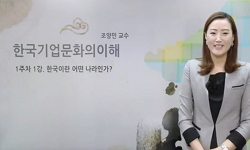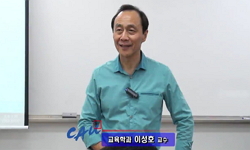When we read some Korean modern literary writings written in the colonial period of Korea, it's easy to find that there were many authors who got motives based on experiences under the colony. This paper is to exemplify a few writers in this category ...
http://chineseinput.net/에서 pinyin(병음)방식으로 중국어를 변환할 수 있습니다.
변환된 중국어를 복사하여 사용하시면 됩니다.
- 中文 을 입력하시려면 zhongwen을 입력하시고 space를누르시면됩니다.
- 北京 을 입력하시려면 beijing을 입력하시고 space를 누르시면 됩니다.

한국 근대 시인과 탈식민주의적 글쓰기 = An Essay On the Korean Modern Poets' Writings on Decolonialization : Rereading works of Han Yong-Woon, Lim Hwa, Kim Ki-Rim, and Paek Sheok
한글로보기https://www.riss.kr/link?id=A76172709
- 저자
- 발행기관
- 학술지명
- 권호사항
-
발행연도
2005
-
작성언어
Korean
-
주제어
일본 식민주의 ; 식민주의 경험 ; 민족주의 ; 조선어 ; 문화 ; 탈식민주의 ; 글쓰기 ; Japanese colonialism ; colonial experience ; nationalism ; Korean ; culture ; decolonialism/postcolonialism ; writings
-
등재정보
KCI등재
-
자료형태
학술저널
- 발행기관 URL
-
수록면
7-49(43쪽)
- 제공처
- 소장기관
-
0
상세조회 -
0
다운로드
부가정보
다국어 초록 (Multilingual Abstract)
When we read some Korean modern literary writings written in the colonial period of Korea, it's easy to find that there were many authors who got motives based on experiences under the colony. This paper is to exemplify a few writers in this category such as Han Yong-Woon (1879-1944), Lim Hwa(1908-1953), Kim Ki-Rim (1908-?), Paek Sheok(1912-95?), who strove to decolonize Korea in accordance with their ideology. They put their principles - regarding their writings as a mirror of anticolonialism - into practice. They underwent all sorts of hardships during the Japanese rule. One of Japan's cultural obliteration policies was 'manuscripts censorship'. Namely, most books and periodicals of those days had to be submitted for the censorship on the ground of 'Japanization platforms'. Despite Japanese brutalities, they kept writing against the colonialism. We can not only understand the historical meanings in their works but also find out many various movements or campaigns of Korean people. Particularly, their historical significances can be summarized into three aspects. Firstly, it has an important meaning - cultural and political resistance - that Korean learned men took the leading part against Japanese imperial policies. Secondly, it is the stepping stone with which Koreans open their eyes on the importance of their own literature not in Japanese but in Korean - 'Han-gul'. Lastly, it has unique feature in that it is a socialistic movement based on Marxism and cultural nationalism as well.
Han Yong-Woon, a national representative, took part in the' March 1 Movement' in 1919. He was a very aggressive and active writer who combined many separated and scattered national or social movement into one. He wasa Buddhist priest-poet and his ideas contained both modern rationalism and traditional Zen Buddhism. So he carried national and practical thoughts and rendered distinguished services in person for this period. His most important anthology of poems, Silence of Lover, dealt with a woman who parted from her lover and endured many hardships and disgraces, but she never succumbed to the misfortunes, looking forward to the reunion with her lover. He implicated in his anthology the independence of his own nation; as it were, she is compared to his nation and her reunion with her lover is the independence of nation. Through this allegory, he sought to overcome the absurd treatments under colony.
Lim Hwa was not only a poet but also a critic. As a leader of KAPF (Korea Artista Proletaria Federatio; socialistic literature session influenced by marxism), he was a distinguished marxist and exercised a far-reaching influence upon literary circles from 1925 to 1935. As he had studied Marx, he made head or tail of Japanese imperialism; his big motto was the enhancement of his people's political consciousness. Above all, he considered Japanese imperialism in terms of Marx's class theory. So he bolstered Korea people's enlightenment and argued that it is inevitable to have interaction with Japanese progressive writers. He sought to combine Korean literary movement with Marxism and encouraged many writers to create works of realism. After KAPF went through a bitter ordeals by 'ideology censorship' in 1931, he wrote many poems and critical essays on realism in Korean newspaper.
Kim Ki-Rim studied European modernism in Tokyo. Some years later, he took the initiative of the Korea modernism movement. What with his clinging to modernism movement and what with emphasizing on the importance of conservation and improvement in Korea language, he attained eminence in the literature. Period of Prosperity and Train Derailment are the outstanding short stories dealing with people's destitute lives in northern isolated districts in Korea. He described the exploited class and sweated labors of Koreans more specifically. Futhermore, he depicted that the hard-handed ruler-Japan was amoral and that their international vision did not extend beyond an insa
목차 (Table of Contents)
- 1. 한국 근대문학에서 ‘식민주의의 경험’과 탈식민주의의 문제
- 2. 일본 식민주의와 한국 시인들의 조선주의/계급주의 문화운동의 대립 - 탈식민주의적 글쓰기의 몇 가지 흐름
- 3. 해방 후 민족문학론의 등장, 그리고 ‘그때와 지금’ - 마무리
- 참고문헌
- Abstract
- 1. 한국 근대문학에서 ‘식민주의의 경험’과 탈식민주의의 문제
- 2. 일본 식민주의와 한국 시인들의 조선주의/계급주의 문화운동의 대립 - 탈식민주의적 글쓰기의 몇 가지 흐름
- 3. 해방 후 민족문학론의 등장, 그리고 ‘그때와 지금’ - 마무리
- 참고문헌
- Abstract
동일학술지(권/호) 다른 논문
-
- 한국시학회
- 최정례(Choi Jeong-Rye)
- 2005
- KCI등재
-
- 한국시학회
- 남민우(Nam Min-Woo)
- 2005
- KCI등재
-
- 한국시학회
- 고봉준(Ko Bong-Jun)
- 2005
- KCI등재
-
- 한국시학회
- 박호영(Park Ho-Young)
- 2005
- KCI등재




 KCI
KCI DBpia
DBpia







